Apartments at the Nordpark Magdeburg

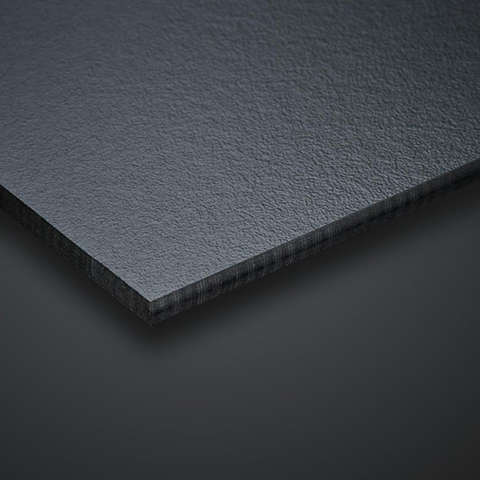


An architectural showpiece that took 71 years to materialise
The apartment complex ‘Wohnhaus am Nordpark’ is the result of a unique – and definitely drawn-out – chain of events. It originates in the late 19th century and took a dramatic turn on January 16th, 1945, during one of the most devastating bombing raid of World War II. Within hours, the magnificent department store that stood there, a typically ornate building in the imperial style, was destroyed to the ground. The resulting ‘war gap’ in the cityscape, right in the centre of Magdeburg’s Old New Town, would stay vacant for no less than seven decades.
It wasn’t until 2015 that Frank Rückriem, the CEO of Stadtfelder Wohnungs- baugenossenschaft (WBG) – a local, membership-based property developer – made a long overdue decision: “We will fill the gap with a modern apartment building designed to emphasise the round shape of the Pfälzer Platz”.
The project was ambitious and provided an ideal opportunity to showcase the locally available expertise: arc architekturconzept, a Magdeburg-based, award- winning architectural firm, developed the concept while a local specialist, whose know-how is in high demand all over Germany, was put in charge of installing the one-of-a-kind ventilated façade.

Unique by design – and by choice
“The specific situation is always our starting point”, explains Sandra Oheim, the principal at the Magdeburg office of arc architekturconzept. “We strive for excellence and for us, no two buildings are alike, because, quite simply, they shouldn’t be. That’s why we favour concepts that are both stringent and out of the ordinary. She brings it to the point: “Ready-made is not part of our vocabulary. We are working on all kinds of projects in a variety of situations, and we certainly do not spurn a synergistic approach. But originality has always to be front and centre. This is what our clients expect from us – and it certainly applies to the Wohnhaus am Nordpark”.

WBG was keen to keep the new apartments affordable, but at the same time intent on supplying highly functional, upscale living space to the company’s members. In addition, as a replacement for the iconic building of yore, the new ‘Wohnhaus’ had to be a showpiece in its own right – a significant, contemporary contribution to Magdeburg’s cityscape that would, at the same time, epitomise the company’s own commitment to excellence.
Sandra Oheim points out: “We decided to play with three materials. More would have been too much. We combined white render, glass and HPL (High Pressure Laminate) façade panels. At the same time, we made the most of the interaction between the curved shape of the building itself and the unusual configuration of the main façade: it alternates protruding ‘boxes’ with recessed loggias. The result is a markedly tridimensional façade, made all the more striking by the material combination”. She underscores: “Each apartment includes a loggia, and most units feature one of those 3D boxes. For maximum visual impact, the boxes have been clad with Trespa® Meteon® panels in a vibrant hue”.

Ideally suited for the project: the Trespa® façade panels
For the architect, the Trespa® panels came with a highly specific, and ultimately decisive advantage – the material’s inherent flexibility. “Depending on the context, fibre cement panels are an alternative worth considering, but this wasn’t an option here. The façade facing the Pfälzer Platz is shaped like a ship’s prow, and the material had to follow the smooth the curve of the hull, so to speak. There was no way to achieve such an effect with a stiff material like fibre cement”.
The design combines two Trespa® Meteon® colours. The boxes and loggias are clad with panels in ‘English Cherry’ – a striking, reddish brown wood decor that highlights the 3D structure. They are complemented by panels in a neutral shade of dark grey: used on both sides of the openings, where they blend with the windowpanes, they help create a contrasting, horizontal pattern. Sandra Oheim explains: “We regularly use Trespa® products, and for a simple reason: the material is convincing. Trespa manufactures HPL façade panels that are highly durable and durably beautiful. In addition, the choice of decors and the tactile quality of the finish are outstanding. In this respect, I will share with you a rather entertaining anecdote. As the project was nearing completion, things were getting tense, as they often do on building sites, and we were all eager to cross the finish line, when all of a sudden, quite a few Meteon® panels went missing. There was only one possible explanation: we were not the only ones who had a strong liking for the material! Luckily enough, these unexpected Trespa aficionados did not cause too much of a disruption, as Trespa was able to supply replacement panels very quickly”.
We regularly use Trespa® products, and for a simple reason: the material is convincing. Trespa manufactures HPL façade panels that are highly durable and durably beautiful. In addition, the choice of decors and the tactile quality of the finish are outstanding.” Sandra Oheim, arc architekturconzept

Know-how is the ingredient that makes the difference
Jan Zenthöfer is the project manager at WF Bau, the specialist for ventilated façades that was in charge of the project. He makes it clear right away: “We pride ourselves on delivering the highest quality in the most demanding situations. As a result, our company has been involved in quite a few high-end façade projects: in a way, they are our market niche. Our competence and our ability to deal with complex façades are obviously widely recognised and appreciated. Our nationwide activities – from Berlin all the way down to Munich – reflect it. As a result, I’m crisscrossing Germany, and recently, I spent half a year travelling back and forth between Magdeburg and Freiburg, near the French border, to coordinate a larger project there”.
He continues: “WBG wanted the Wohnhaus am Nordpark to become a real showpiece, and the architects at arc came up with ideas that go well beyond any conventional approach for a residential building. In such a case, our size and our know-how make all the difference. With our team of 30 specialists, we are a one-stop-shop for ventilated façade solutions – from the design of the sub-framing to the complete installation. In addition, our workshop is equipped with advanced CNC cutting and milling machines. We were therefore in the ideal position to develop and install the ventilated façades for the Wohnhaus am Norpark project”. Jan Zenthöfer adds: “We put our CNC equipment to good use and managed all the cutting and milling operations in- house. At the same time, we successfully minimised cutting waste. I must point out that the choice of four panel sizes offered by Trespa was very helpful here: for the Wohnhaus project, we used three of those standard panel sizes”.

“The architectural concept confronted us with a threefold challenge. First, we had to meticulously prepare all the shop drawings for the façade. This was anything but easy, as we had to deal with multiple panel dimensions, to say nothing of the curved panels. Then, we were confronted with the panels on the undersides of the protruding ‘boxes’, some of which have curved fronts. In that case, the undersides had to precisely match the façade’s curvature. In some cases, we had to draw the individual shapes on location in order to prepare accurate templates. Based on the templates, we then cut the Trespa® Meteon® panels with the smallest possible tolerance in our workshop”.
He continues: “In addition to this, the sub-framing was highly specific and definitely sophisticated. In some cases, we had to make sure the façade’s curvature would stay absolutely constant over several floors, while providing for the required stability of the whole system. For the curved sub-framing, we resorted to bent square tubes. The panels were then placed on the framing, put under constant, even tension and fastened in place with rivets. In such a case, one has to reduce the space between the rivets in order to compensate for the tension. Lasting stability depends on that kind of detail. Then, the installation of the undersides came with a challenge of its own, as it is notoriously difficult and tiring to fasten cladding from beneath. In such a case, it is a huge advantage to use Meteon® panels, which weigh a mere 8 kg/m². Doing something similar with fibre cement panels would have been a Herculean task!”.

Jan Zenthöfer sums up: “The project was exciting and successful – which made it really satisfying despite its complexity. In addition, Trespa® panels are a beautiful building material – and an extremely enduring one that will stay pristine for a long time. The impact resistance of the panels is equally impressive. Although this was not a real issue here, when dealing with a school project, for example, it is essential. Depending on the context, we sometimes use bonded aluminium panels. But a good punch is all it takes to dent them. Try to do this with a Trespa® panel – you’ll just hurt yourself! At WF Bau, by the way, we are about to get involved in a new, rather crazy project with Trespa. But this is all I can tell you for now”.
Trespa® panels are a beautiful building material – and an extremely enduring one that will stay pristine for a long time. The impact resistance of the panels is equally impressive.” Jan Zenthöfer, WF Bau

Praise across the board – from strangers to jurors
Sandra Oheim concludes with some comments about the public’s reactions to the Wohnhaus am Nordpark: “Once the project was completed, some of the comments made us quite happy. Indeed, total strangers would give us spontaneous, enthusiastic feedback and congratulate us cheerfully on our ‘Great job’. At the same time, we got many favourable reviews and two awards. In the category ‘Innovative Façade’, we won the national ‘Award Deutscher Wohnungsbau 2019’. The Award was presented to us in Munich by the famous German actress Barbara Schöneberger! In addition, our regional trade association, the ‘Magdeburger Architekten- und Ingenieurverein’, awarded us their prize ‘Bauwerk des Jahres 2017’ (Building of the Year 2017)”.

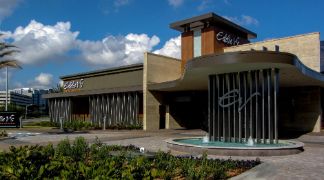
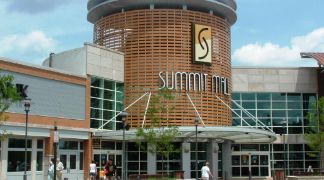
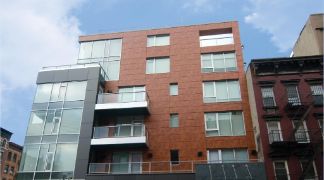
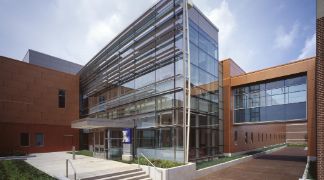
 ES/ES
ES/ES
















